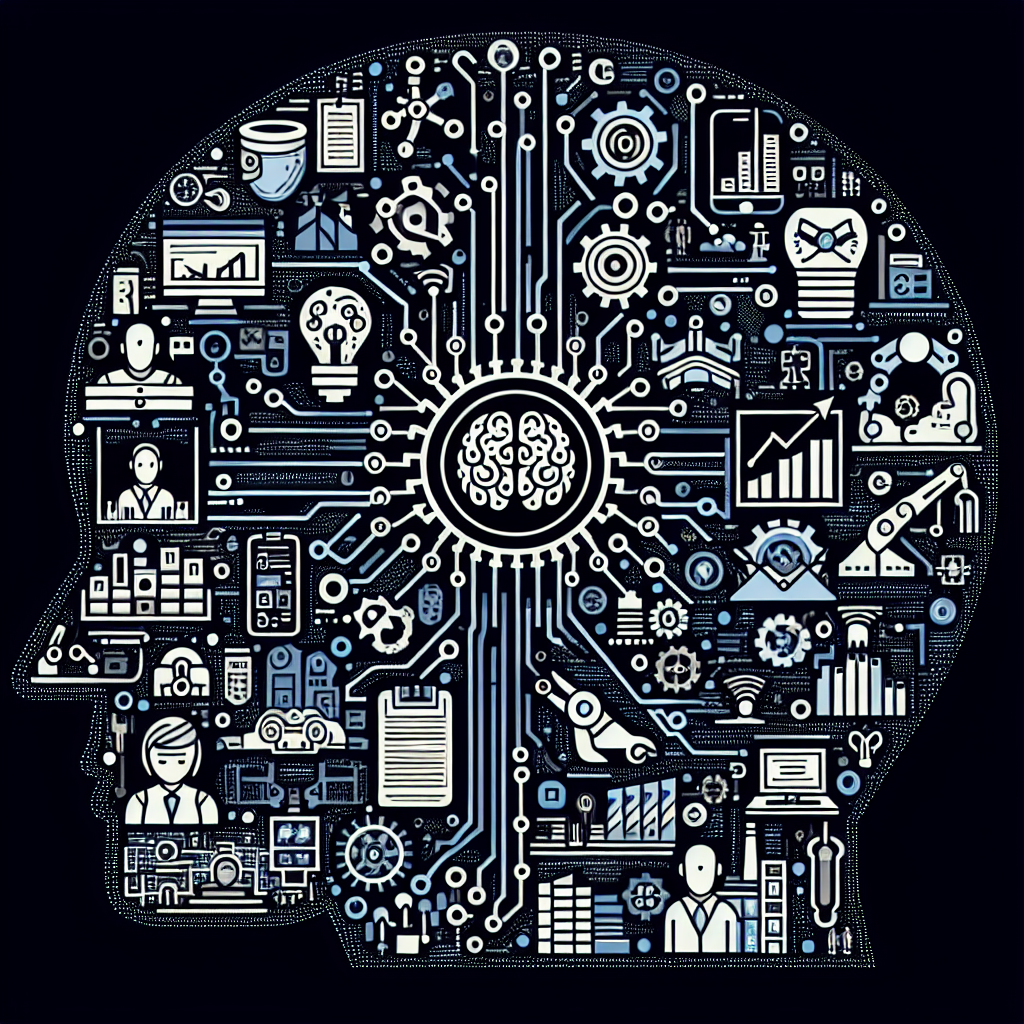Artificial General Intelligence (AGI) is a term used to describe a type of artificial intelligence that is capable of understanding, learning, and applying knowledge in a way that is similar to human intelligence. While current AI systems are limited in their ability to perform specific tasks, AGI has the potential to revolutionize many aspects of society, including the future of work.
The impact of automation on job markets has been a topic of much discussion in recent years, with many experts predicting that advancements in AI and robotics could lead to significant changes in the way we work. As AGI technology continues to develop, it is important to consider how it could impact the future of work and what steps can be taken to prepare for these changes.
In this article, we will explore the potential impact of AGI on job markets, how automation could reshape the workforce, and what the future of work might look like in a world where AGI is a reality.
The Impact of AGI on Job Markets
The development of AGI has the potential to automate a wide range of tasks and jobs that are currently performed by humans. From manual labor to complex decision-making processes, AGI has the ability to perform a variety of tasks more efficiently and accurately than humans.
As a result, many jobs that are currently held by humans could become obsolete as AGI technology becomes more advanced. This could lead to significant disruptions in the job market, with some industries being more heavily impacted than others.
For example, jobs that involve routine tasks or predictable patterns are likely to be among the first to be automated by AGI technology. This includes jobs in manufacturing, transportation, and customer service, among others. While some new jobs may be created as a result of automation, the overall impact on the job market could be significant.
In addition to job loss, the rise of AGI could also lead to changes in the way we work. For example, the increased use of automation could lead to more flexible work arrangements, such as remote work and gig economy jobs. This could have both positive and negative implications for workers, depending on their individual circumstances.
How Automation Could Reshape the Workforce
Automation has the potential to reshape the workforce in a number of ways, some of which are already beginning to take shape. For example, the rise of AI-powered chatbots and virtual assistants has already started to change the way customer service is delivered, with many companies using these technologies to handle routine customer inquiries.
In addition to changes in specific industries, automation could also lead to shifts in the types of skills that are in demand in the job market. As automation becomes more prevalent, skills that are related to AI and robotics, such as programming and data analysis, are likely to become increasingly important for workers looking to stay competitive in the job market.
At the same time, automation could also create opportunities for workers to focus on tasks that require creativity, critical thinking, and emotional intelligence – skills that are currently difficult for AI systems to replicate. This could lead to a reimagining of the way we work, with a greater emphasis on human-centric skills and qualities.
What the Future of Work Might Look Like
In a world where AGI technology is widespread, the future of work could look very different from what we are used to today. While some jobs may be eliminated as a result of automation, new opportunities could also emerge in industries that are currently in their infancy.
For example, the development of AGI technology could lead to the creation of new roles in fields such as AI ethics, data privacy, and algorithmic bias. As AI systems become more advanced, the need for professionals who can ensure that these technologies are used responsibly and ethically is likely to grow.
In addition to new roles, the future of work could also see changes in the way we think about education and training. As automation continues to reshape the workforce, there will be a growing need for workers to develop skills that are less susceptible to automation, such as creativity, problem-solving, and emotional intelligence.
FAQs
Q: Will automation lead to mass unemployment?
A: While automation has the potential to eliminate some jobs, it is unlikely to lead to mass unemployment. Instead, automation is likely to create new opportunities in industries that are currently in their infancy, as well as in roles that require skills that are less susceptible to automation.
Q: What can workers do to prepare for the impact of automation?
A: Workers can prepare for the impact of automation by developing skills that are less susceptible to automation, such as creativity, problem-solving, and emotional intelligence. Additionally, staying up-to-date on developments in AI and robotics can help workers stay competitive in the job market.
Q: How can policymakers address the impact of automation on job markets?
A: Policymakers can address the impact of automation on job markets by investing in education and training programs that help workers develop skills that are less susceptible to automation. Additionally, policies that support workers who are displaced by automation, such as job training programs and income support, can help mitigate the impact of automation on job markets.
In conclusion, the rise of AGI technology has the potential to revolutionize the future of work in ways that we have never seen before. While automation could lead to job loss in some industries, it also has the potential to create new opportunities in fields that are currently in their infancy. By preparing for the impact of automation and developing skills that are less susceptible to automation, workers can position themselves for success in a world where AGI is a reality.

